Bambu Lab ABS Basic
Bambu ABS
Bambu ABS is a dependable 3D printing material renowned for its exceptional stability, durability, and high impact resistance. Additionally, this filament also boasts excellent heat resistance, making it ideal for projects involving moderate temperatures. With its versatile properties, Bambu ABS filament stands as an excellent choice for a wide range of 3D printing applications.
Strong & Durable
As one of the most widely used filaments, Bambu ABS comes with excellent mechanical properties that make it stronger than normal PLA and PETG. It is ideal for creating functional parts, prototypes, and standard engineering components, ensuring long life and reliability.
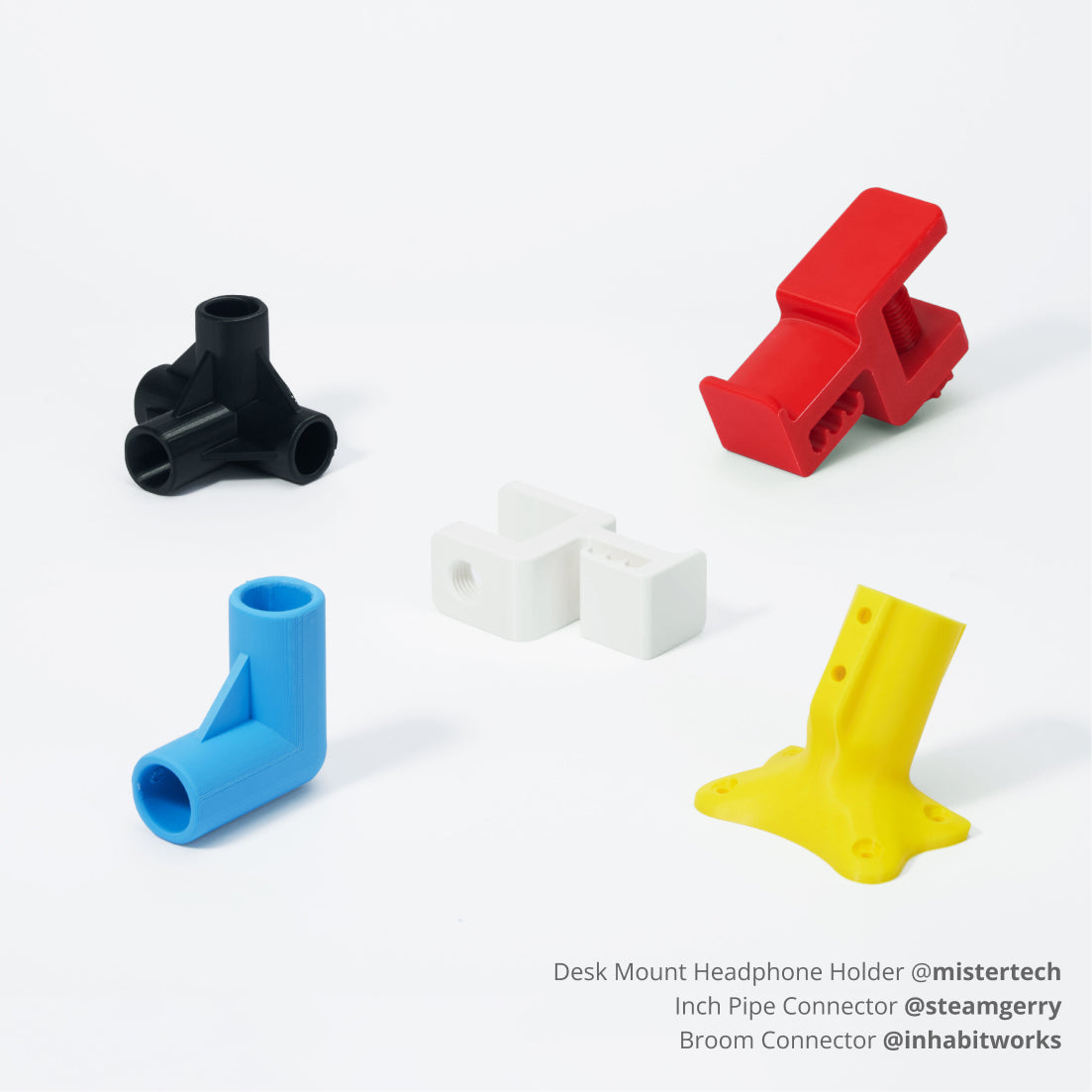
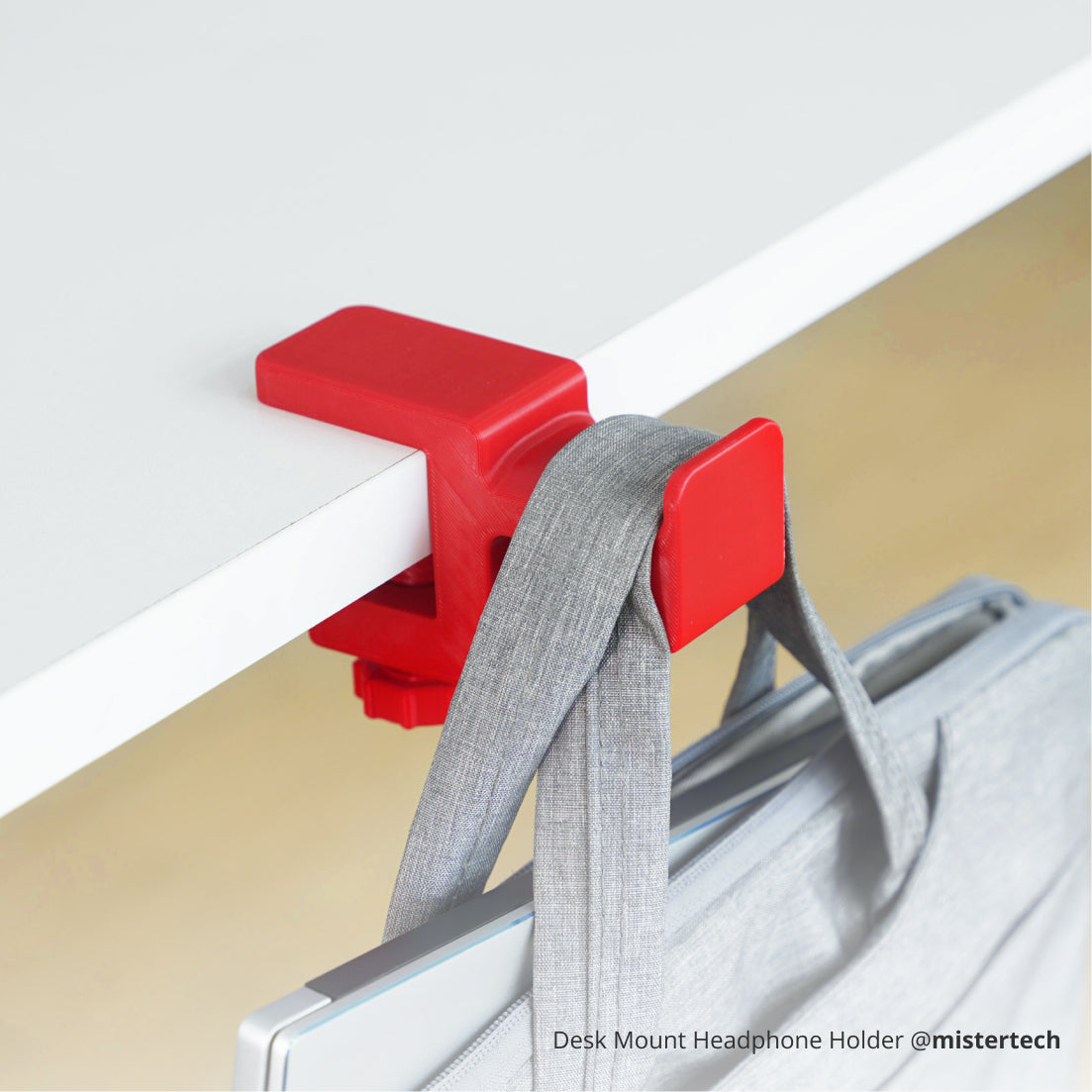
Impressive Heat Resistance
Bambu ABS filament offers exceptional heat resistance (Heat Deflection Temperature: 87 °C) coupled with commendable mechanical properties. This makes it an outstanding choice for everyday functional parts that require high-temperature resistance.
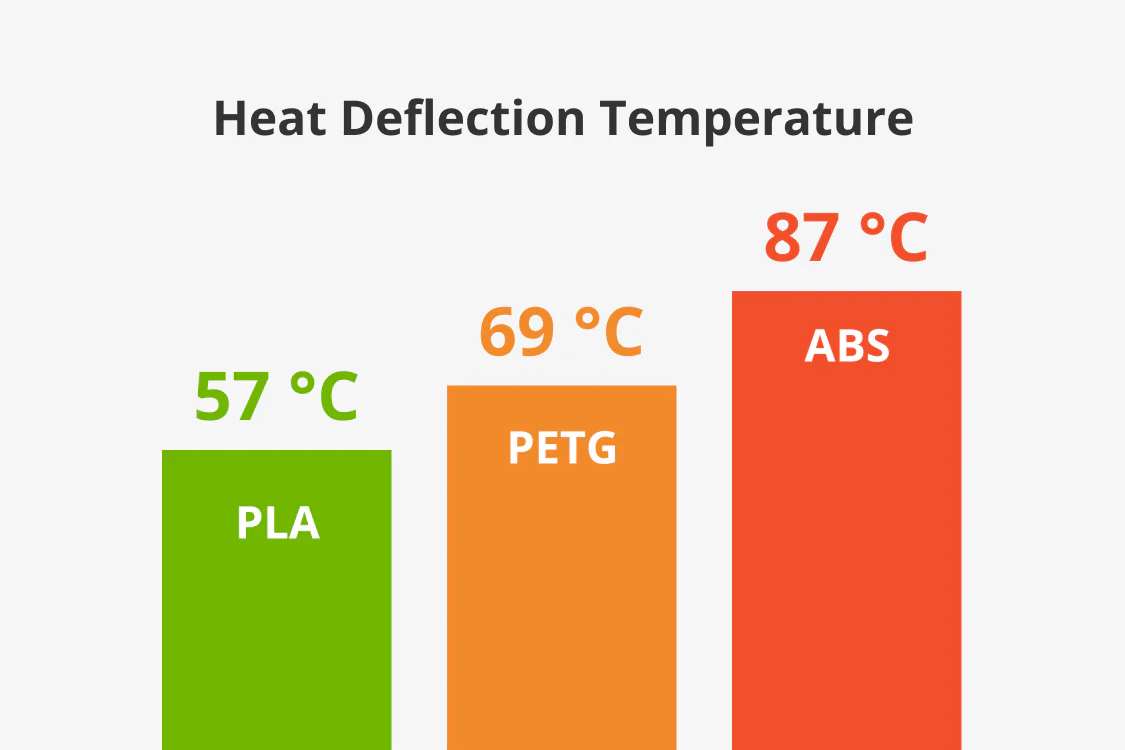
Water-Resistant
Boasting excellent water-resistant performance, Bambu ABS ensures relatively long-lasting durability when used in a wet environment.
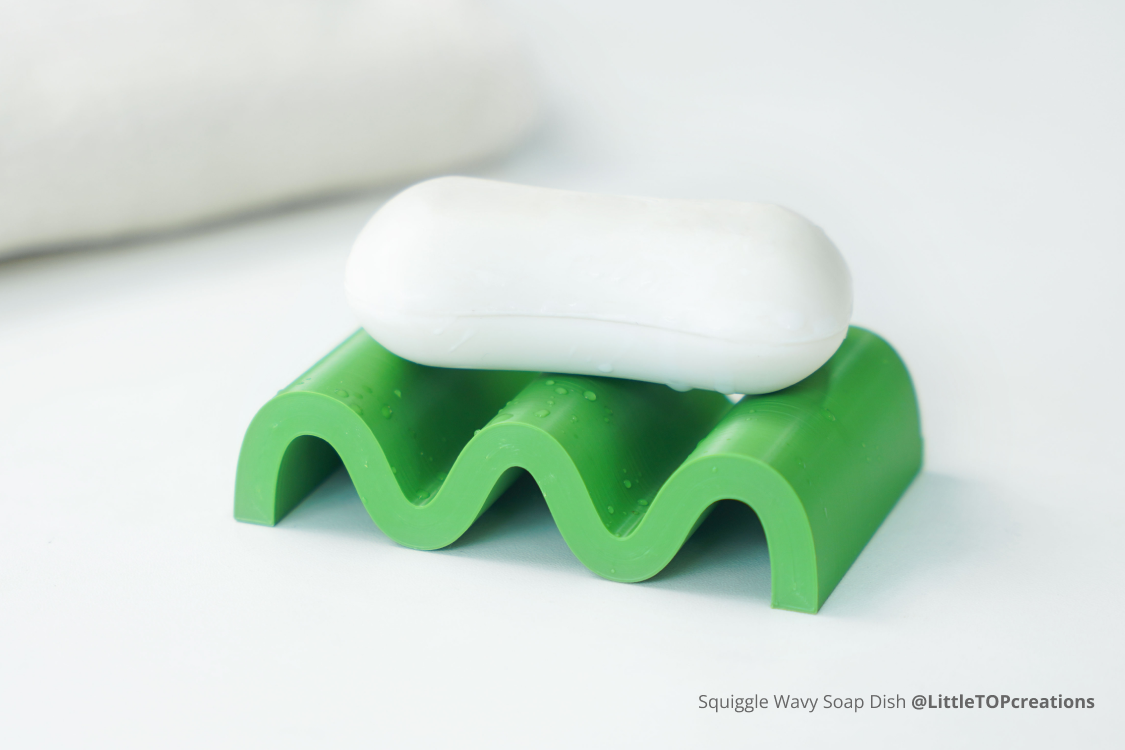
Tough with High Impact Resistance
Bambu ABS is exceptionally robust, and its prints can withstand multiple impacts, collisions, and falls. It exhibits good impact resistance even at low temperatures.
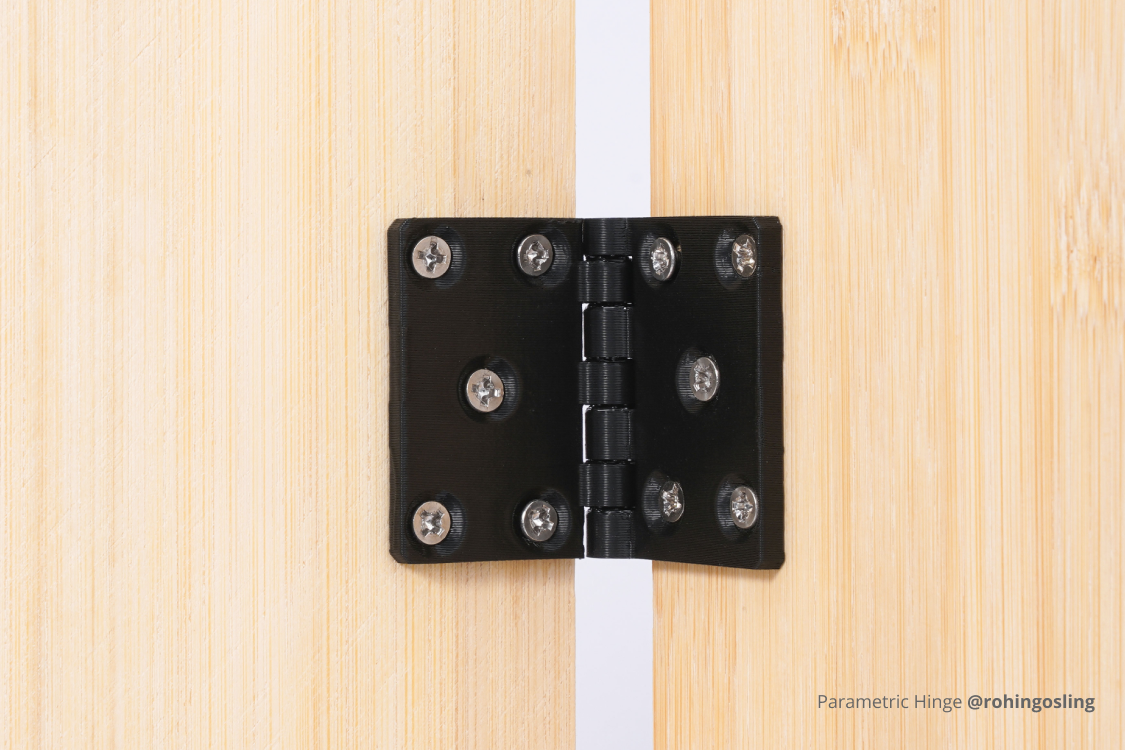
Accessory Compatibility
| Recommended | Not Recommended | |
| Build Plate | Engineering Plate, High Temperature Plate or Textured PEI Plate | Cool Plate |
| Hotend | All Size / Material | / |
| Glue | Bambu Liquid Glue Glue Stick | / |
RFID for Intelligent Printing
All printing parameters are embedded in RFID, which can be read through our AMS (Automatic Material System).
Load and print! No more tedious setting steps.

| Recommended Printing Settings | |
| Drying Settings (Blast Drying Oven) | 80 °C,8 h |
| Printing and Keeping Container’s Humidity | < 20% RH (Sealed,with Desiccant) |
| Nozzle Temperature | 240 – 270 °C |
| Bed Temperature (with Glue) | 80 – 100 °C |
| Printing Speed | < 300 mm/s |
| Physical Properties | |
| Density | 1.05 g/cm³ |
| Vicat Softening Temperature | 94 °C |
| Heat Deflection Temperature | 87 °C |
| Melting Temperature | 200 °C |
| Melt Index | 34.2 ± 3.8 g/10 min |
| Mechanical Properties | |
| Tensile Strength | 33 ± 3 MPa |
| Breaking Elongation Rate | 10.5 ± 1.0 % |
| Bending Modulus | 1880 ± 110 MPa |
| Bending Strength | 62 ± 4 MPa |
| Impact Strength | 39 ± 3.6 kJ/m² |
Printing Tips
• Pungent and unpleasant odors may be released during printing. Make sure your printer is placed in a well-ventilated area.
• Drying conditions: 80℃ for 8 hrs. Store in a dry environment after use. Dry before use if the material absorbs moisture. For more details please refer to: Filament drying instructions on WIKI.
• ABS is prone to warping when printing large size and/or high infill density model. To avoid warping: 1) Not recommemded to print too large size and/or high infill density model. 2) Use enclosure printers and ensure the build plate is properly glued before printing. 3) Set lower printing speed and higher heatbed temperature. For more details please refer to: Common print quality problems and solutions on WIKI.

Print Your Own Spool Now
Bambu Lab 3D printer comes with a spool model. Print Spool Part 1&2 from the build-in files!

Instructions for Printed Spool
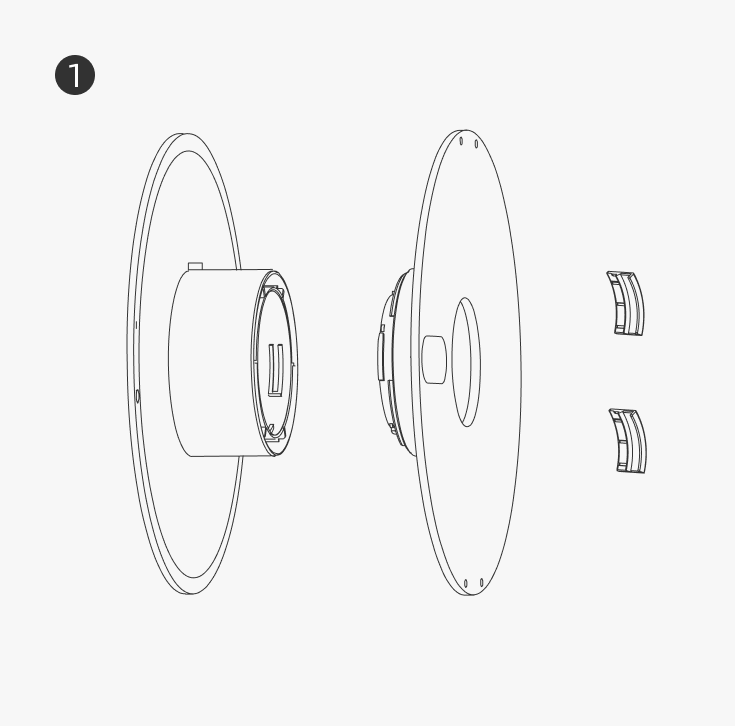
When you’re finished printing, you will have a wide piece (1x), narrow piece (1x), spacing shim (2x).
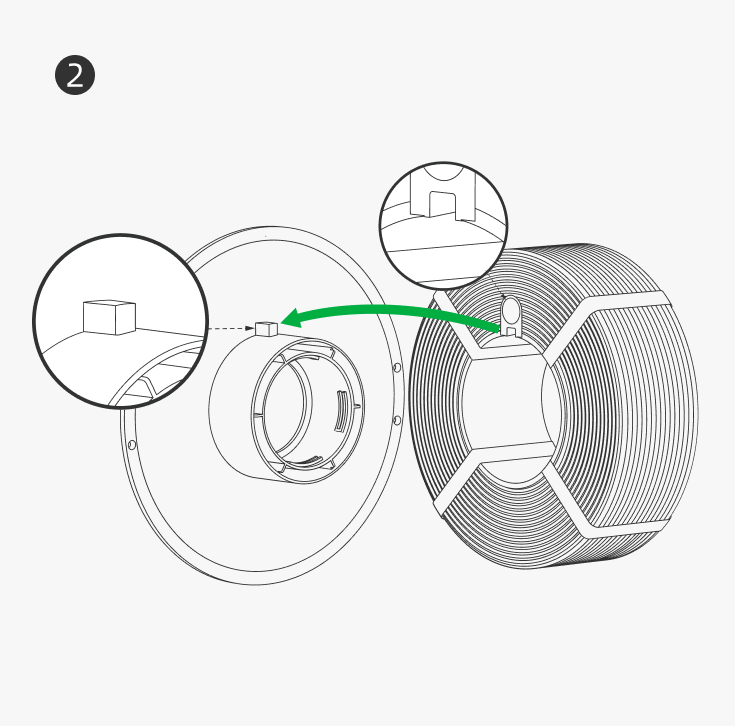
Find the locator (a tiny block on the wide piece). Align it with the notch on the inner ring of the filament roll. Insert the wide piece into the filament roll.
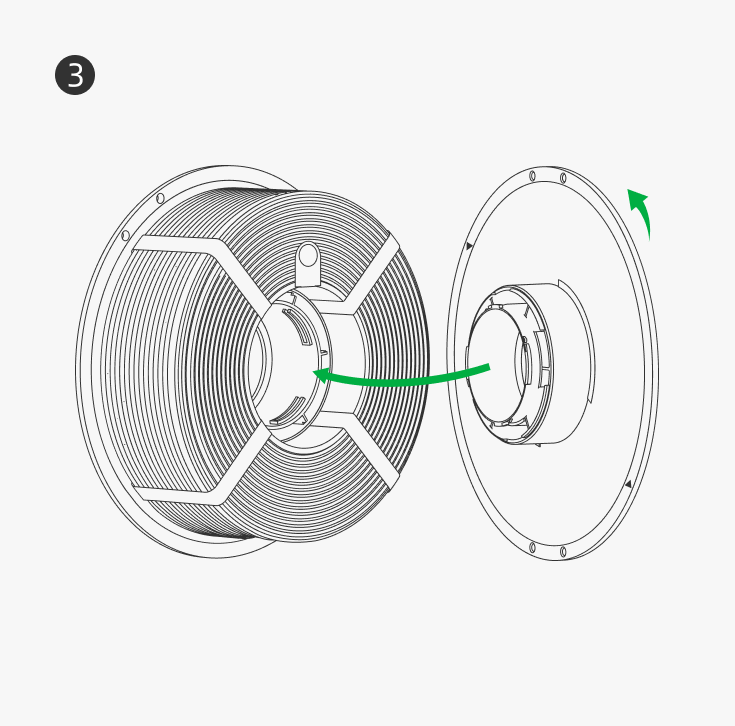
Step 1. Insert the narrow piece and align the groove of each piece inside of the spool until it is pushed firmly into the wide piece.
Step 2. Once it is pushed firmly into the wide piece, rotate the narrow piece clockwise until it slides into place and you hear it lock.
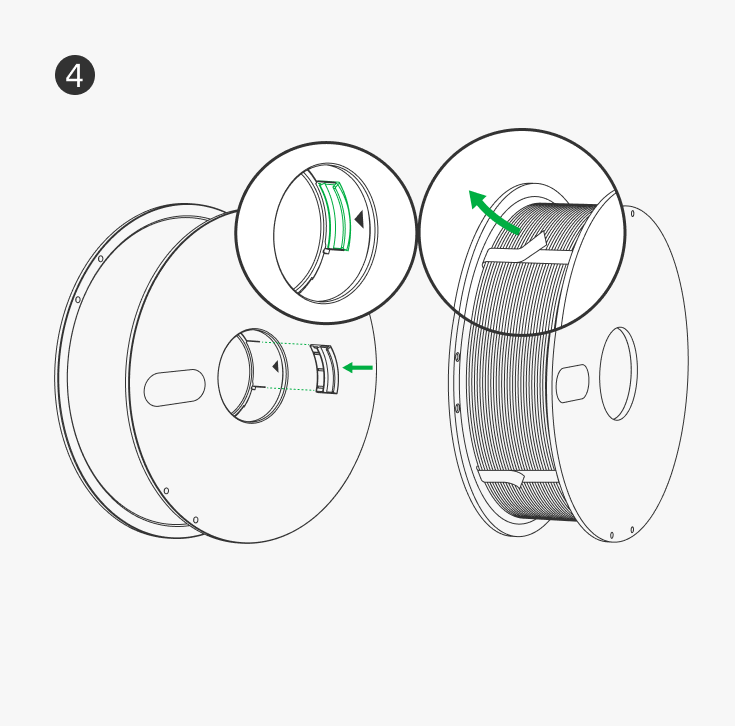
Step 1. Make sure the spacing shim is installed inside the spool (under the triangle).
Step 2. Tear apart and pull out the plastic strips.
Learn more about swapping the new filament with Bambu Reusable Spool on Wiki, Click Here.



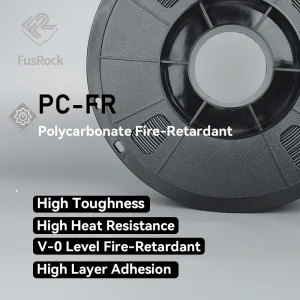
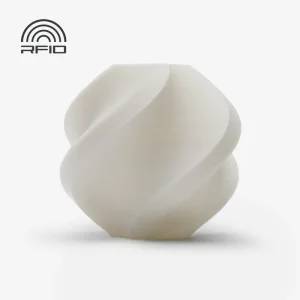


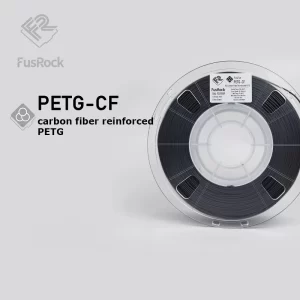

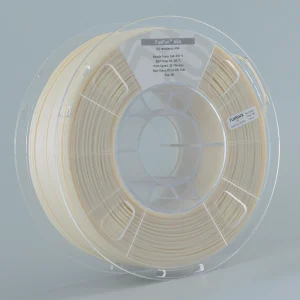
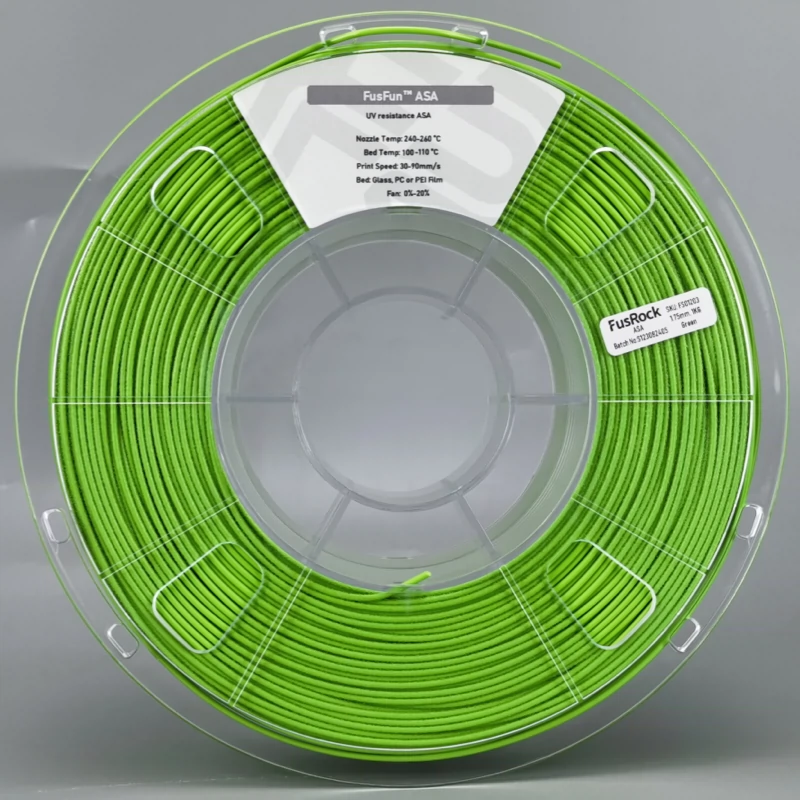
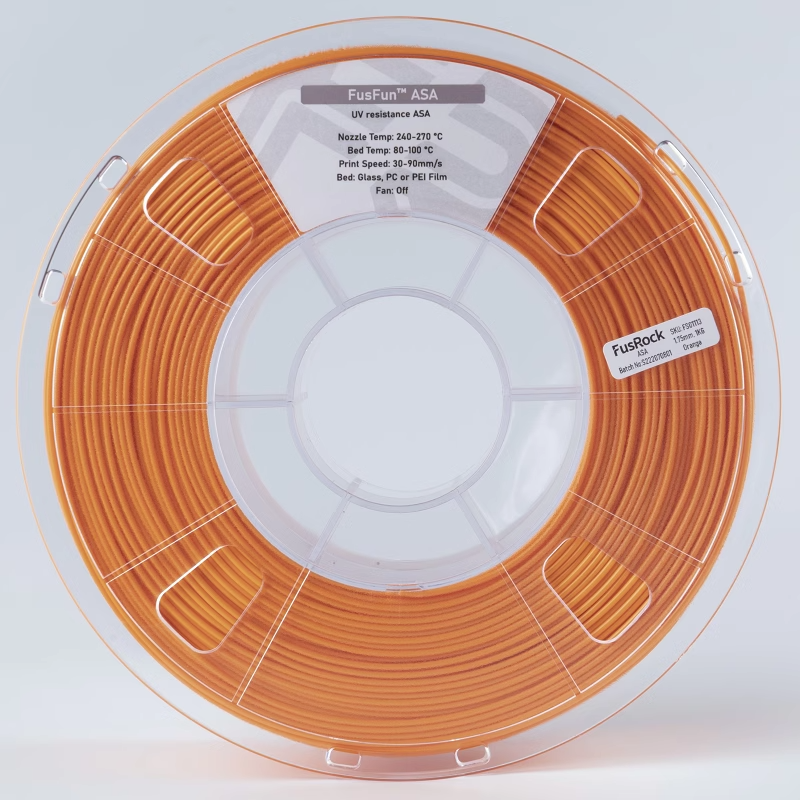
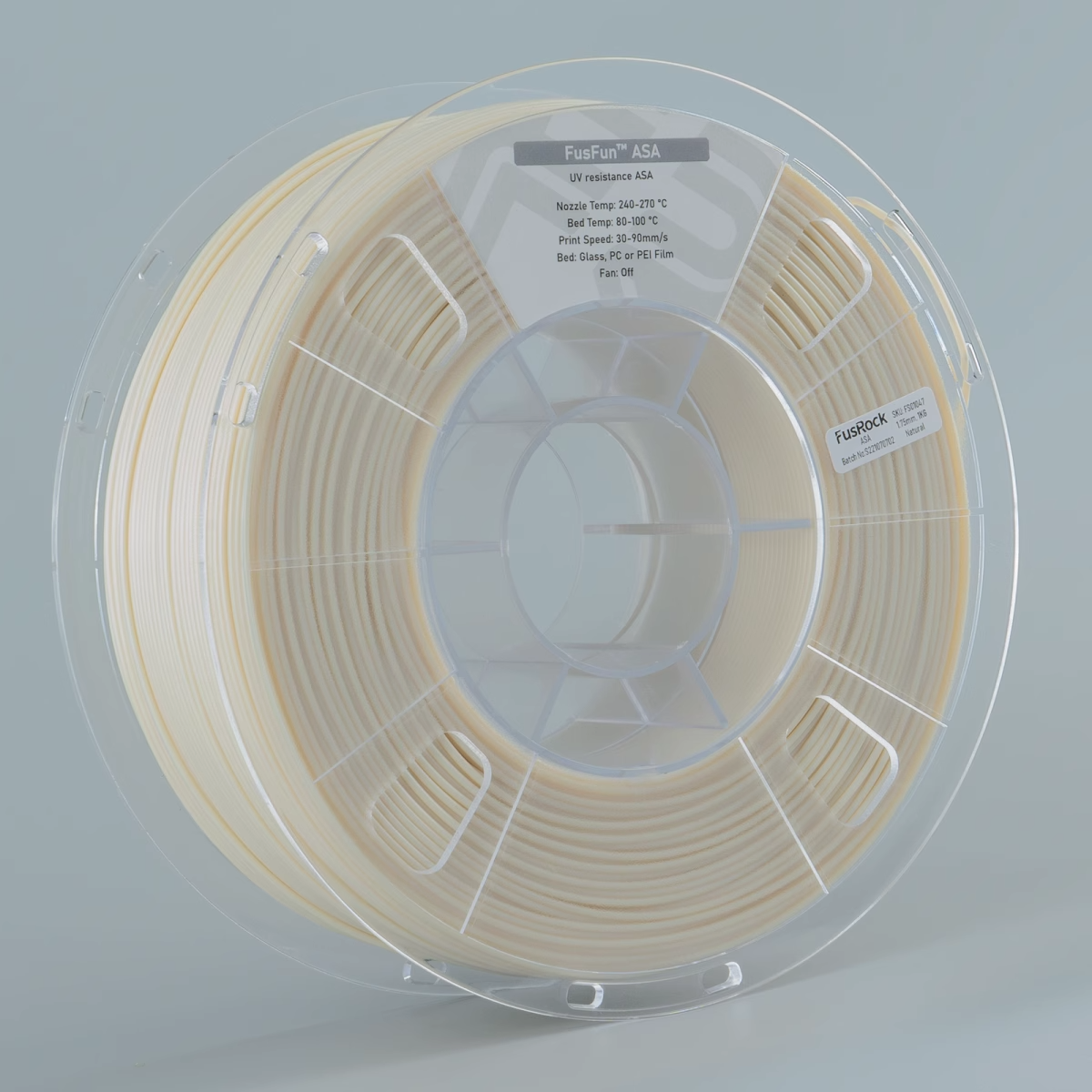
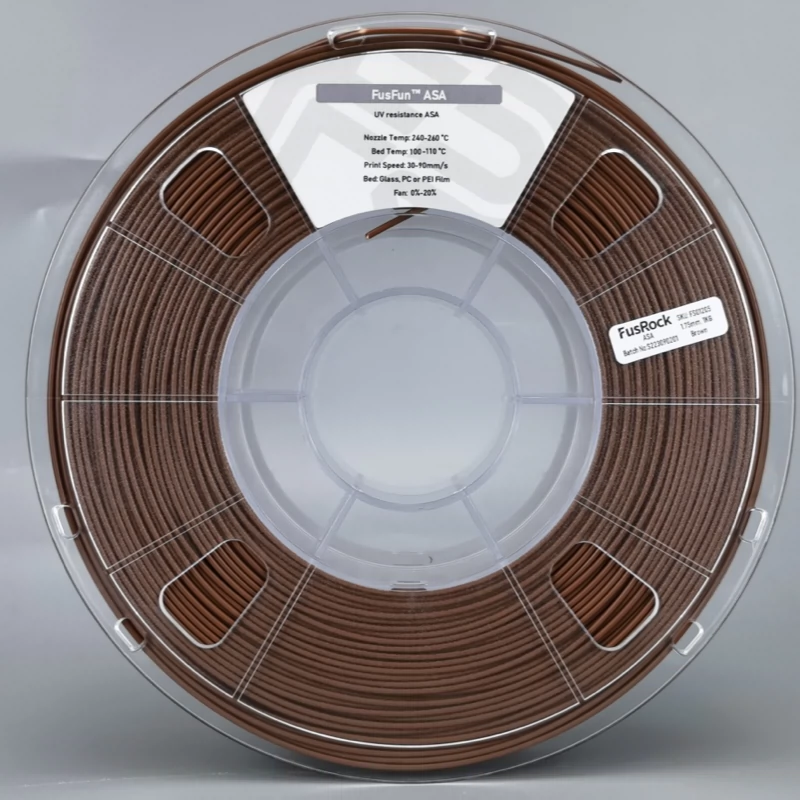
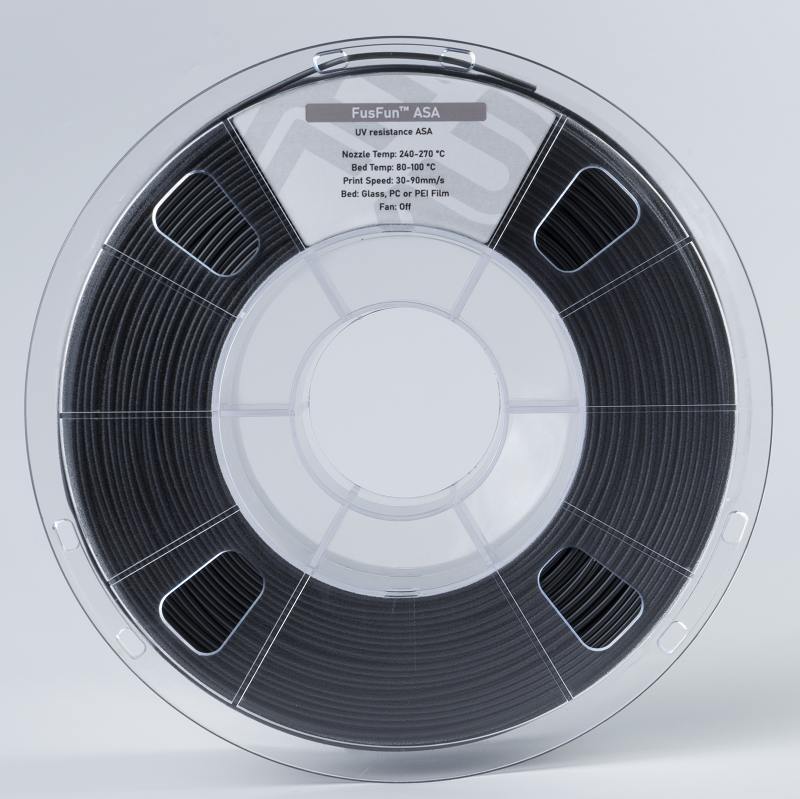
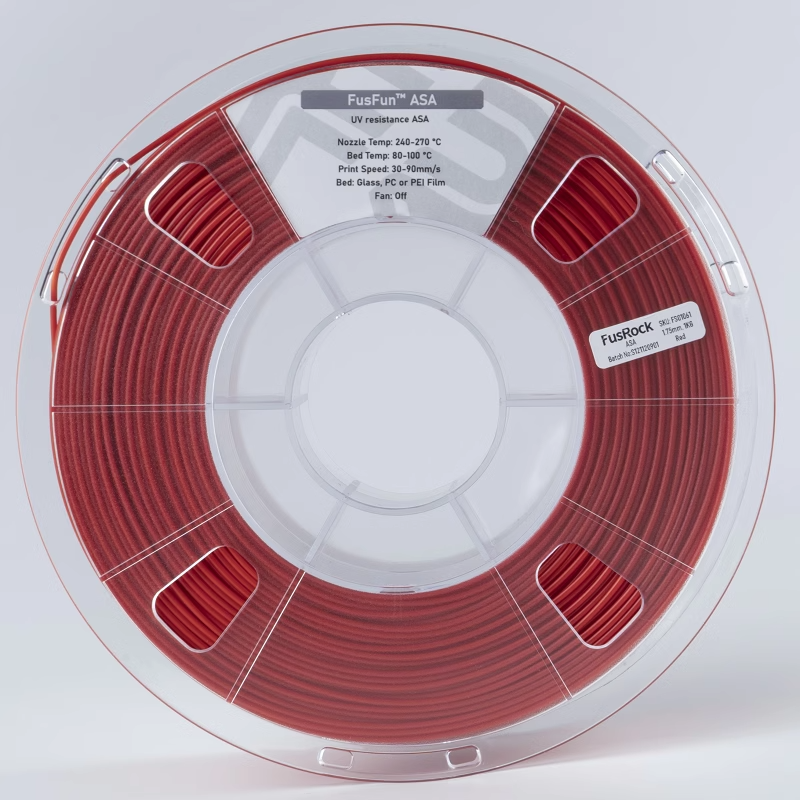
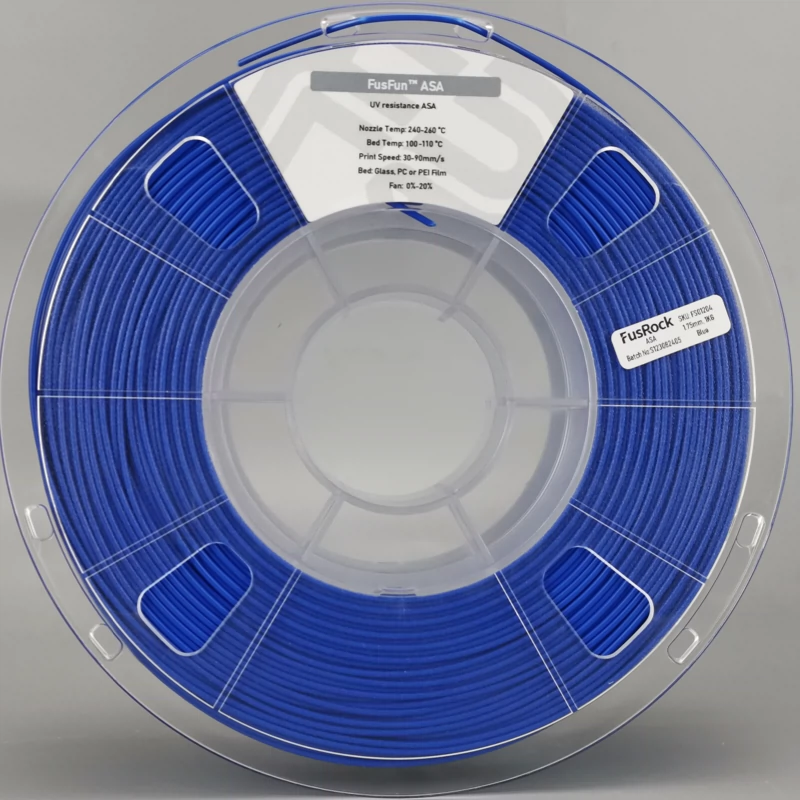
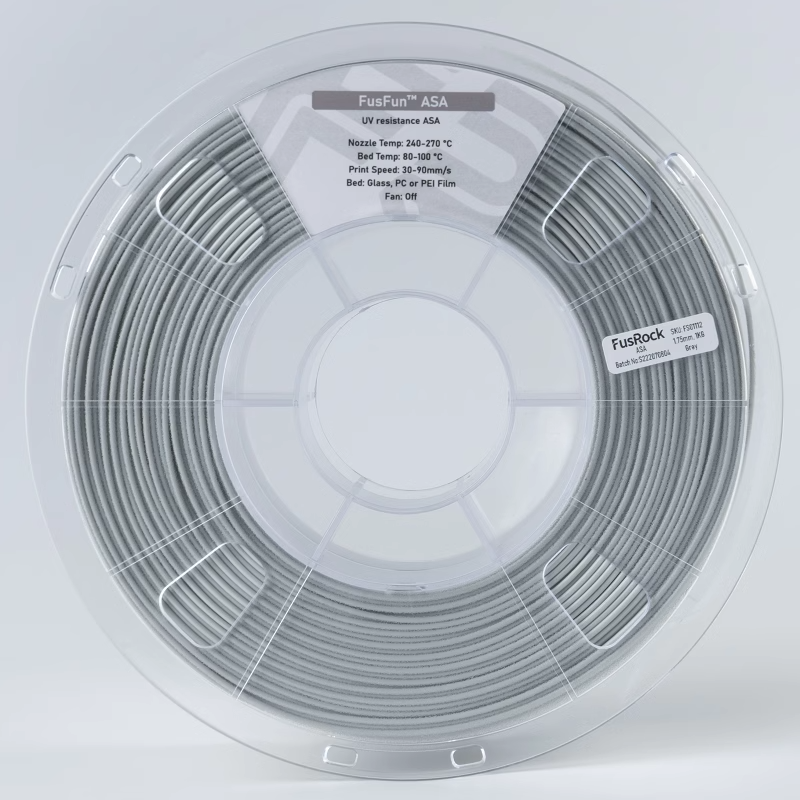
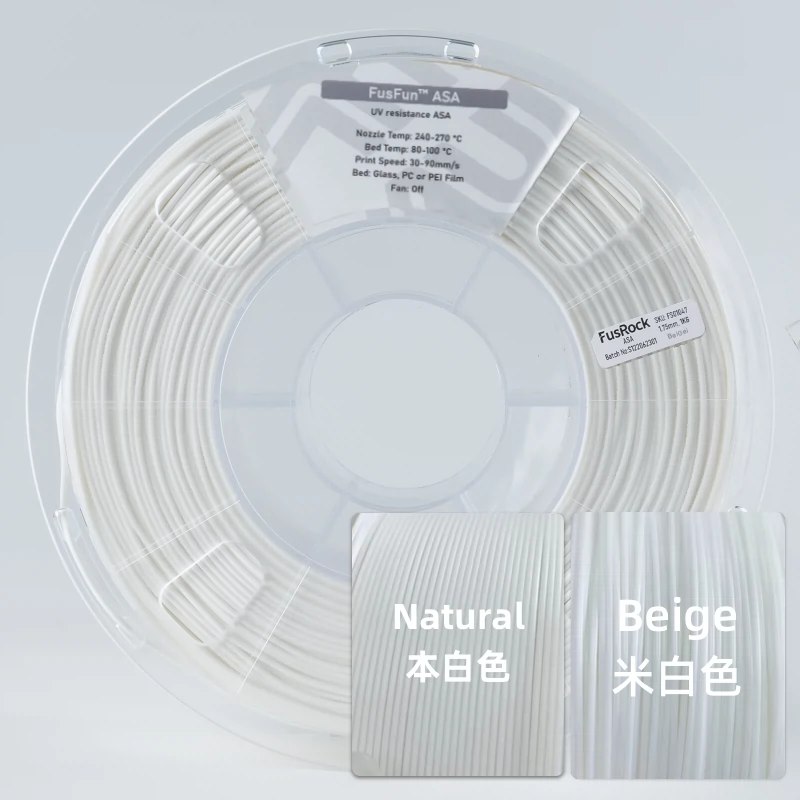
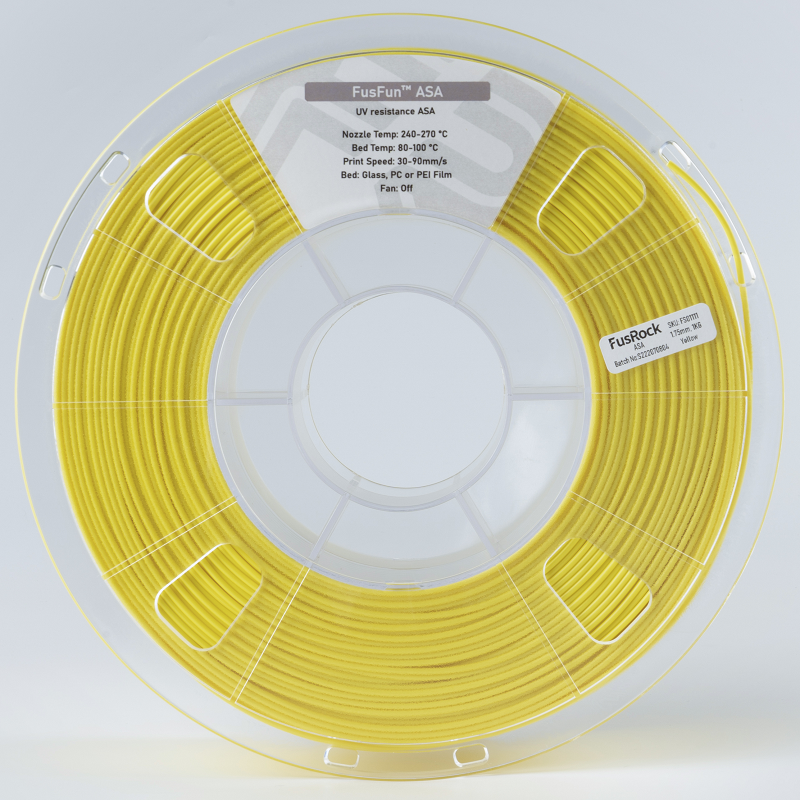
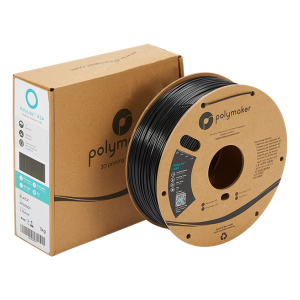


Reviews
There are no reviews yet.